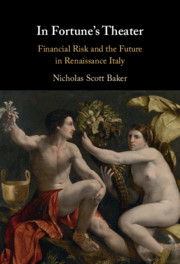
- Cited by 2
-
Cited byCrossref Citations
This Book has been cited by the following publications. This list is generated based on data provided by Crossref.
Nelson, Jonathan K. and Zeckhauser, Richard J. 2024. Risks in Renaissance Art.
Iodice, Antonio 2024. Women at Work in Italy (1750–1950). p. 9.
- Publisher:
- Cambridge University Press
- Online publication date:
- July 2021
- Print publication year:
- 2021
- Online ISBN:
- 9781108920674


